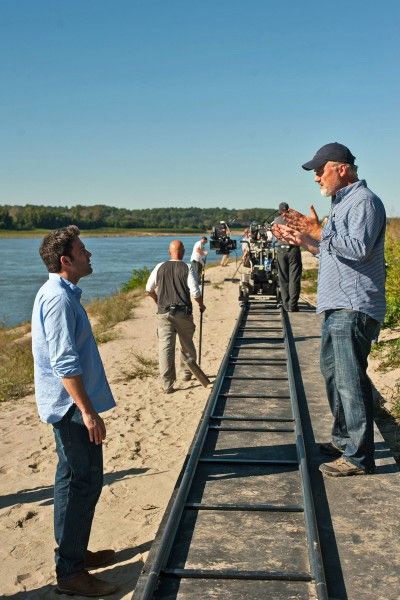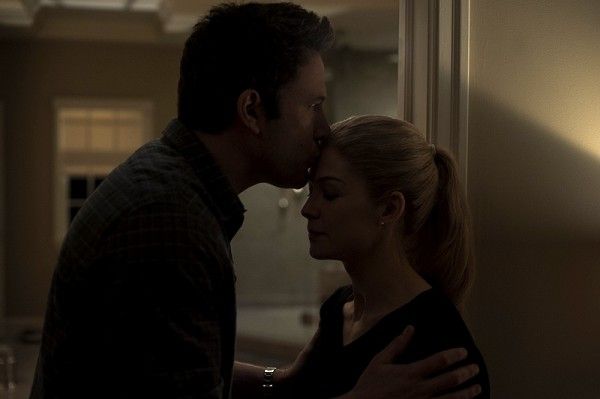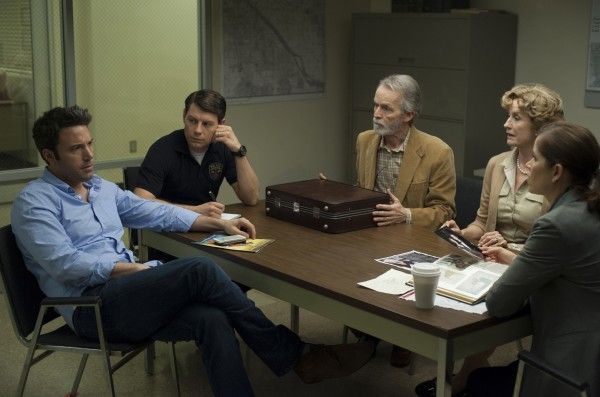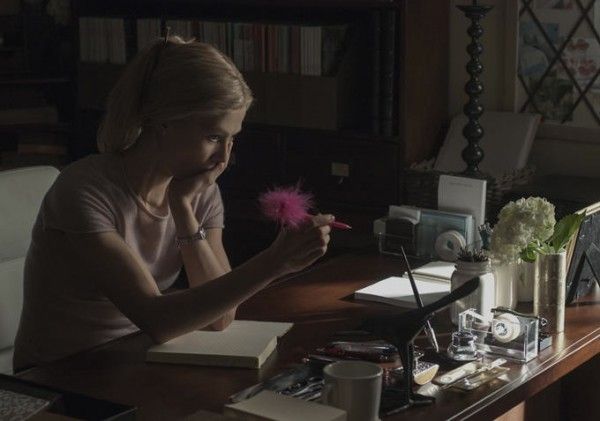Director David Fincher’s Gone Girl is my most anticipated film from the rest of 2014. I like Gillian Flynn’s book well enough, but it seems to be a fantastic foundation on which Fincher could build something truly special. As the film’s October 3rd release date looms closer, we’ve started hearing rumblings about what Fincher’s adaptation entails, including more than a few mentions of the word “satire”. The filmmaker recently took part in an interview for the film in which he was candid about his tonal aspirations and why he cast Ben Affleck in the lead role.
Specifically, Fincher admits that Affleck’s experience of being under public scrutiny was an invaluable resource for playing the character of Nick Dunne—a man who becomes the prime suspect in his wife’s disappearance—and also discusses how the crux of the film is about “the idea of our collective narcissism as it relates to coupling.” Read on after the jump.
Speaking with Film Comment, Fincher talked about his decision to cast Affleck in the lead role and how the actor had no qualms about delving back into his life in the public eye:
“I enjoyed working with him immensely. The baggage he comes with is most useful to this movie. I was interested in him primarily because I needed someone who understood the stakes of the kind of public scrutiny that Nick is subjected to and the absurdity of trying to resist public opinion. Ben knows that, not conceptually, but by experience. When I first met with him, I said this is about a guy who gets his nuts in a vise in reel one and then the movie continues to tighten that vise for the next eight reels. And he was ready to play. It’s an easy thing for someone to say, 'Yeah, yeah, I’d love to be a part of that,' and then, on a daily basis, to ask: 'Really? Do I have to be that foolish? Do I have to step in it up to my knees?' Actors don’t like to be made the brunt of the joke. They go into acting to avoid that. Unlike comics, who are used to going face first into the ground. Nick is someone who has skated by on charm and has that as a deflection mechanism. And that’s what crucifies him. And Ben got that.”
Fincher also discussed the tone of the movie, saying it walks the line between absurd and sincere:
“When I first met with [Affleck], we didn’t have the script yet, but he’d read the book. I mentioned a National Lampoon record from the mid-Seventies called That’s Not Funny, That’s Sick. That’s kind of the tone of the movie. If we play it too earnest and sincere, then it’s tragedy, but if we go with the absurdity of it, I think it can walk a satirical line.”
The director also talked about the adaptation process, saying he honed in on a very specific aspect of the book that he wanted to focus on:
“The book is many things. You have to choose which aspect you want to make a movie from. Most interesting to me was the idea of our collective narcissism as it relates to coupling, or who we show to our would-be mates and who they show to us. It’s the most absurdly honest part of the book and the newest thing in terms of what it illuminates about marriage and what may or not be going on behind closed doors.”
Fincher echoed previous comments made by Affleck about Gone Girl being an excellent date movie, saying couples may come out of the movie with sharply opposing viewpoints:
“I can’t wait to see what will go on between couples at dinner after they see the movie. There are so many interesting tectonic shifts. When the people I’ve shown the movie come out of it, they are either Team Amy or Team Nick. Team Amy doesn’t have a single quibble about her behavior, and Team Nick doesn’t have any problems with his. Then there are people who primarily measure it against the book and how they felt about the characters in the book.”
With regards to how the film compares to the book, Fincher aptly describes it as a “deforestation”:
“And the narrative of the movie is vastly denuded from the way it’s allowed to grow and bloom in the novel. It wasn’t a defoliation as much as a deforestation. Once you got it back to the branches and the trunk, it was pretty easy to see that this movie was going to be about who we are and who we present to those we are endeavoring to seduce. And the absurdity of that difference needed to be part of the two-and-a-half-hour fabric in a much bigger way than in the novel. For me, the 30 percent of the novel that’s about who we present—our narcissistic façades—becomes the entire foundation of the movie.”
And this is what I was expecting to see from Fincher’s adaptation of the book. Not a simple by-the-numbers murder mystery, but a down and dirty portrait of a destructive marriage that illuminates some universal truth about relationships. October can’t get here fast enough.





